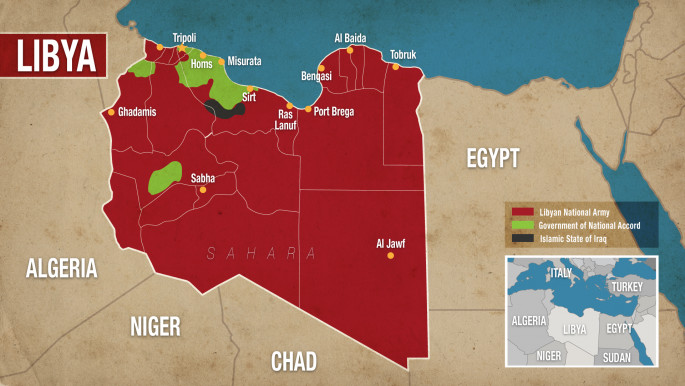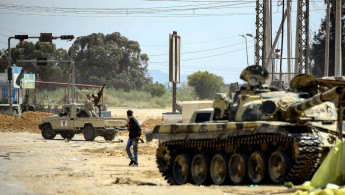UN warns of worsening humanitarian situation in Libya
"As long as the situation continues, even if it just stagnates and continues like this, we can expect to see a continuing deterioration," UN humanitarian coordinator for Libya Maria do Valle Ribeiro told AFP.
Strongman Khalifa Haftar's self-styled Libyan National Army (LNA) launched an offensive against Tripoli, the seat of the internationally recognised Government of National Accord (GNA), on April 4.
"When we see the use of air power, the indiscriminate shelling of densely populated areas, it is very difficult to be optimistic," do Valle Ribeiro, who is also the deputy UN envoy to Libya, said late on Sunday.
She was speaking after air raids by the LNA on Tripoli on Saturday killed four people and wounded 20 others, according to the GNA.
"We continue to call for a respect of civilians, we continue to call for humanitarian pauses and most of all we continue to hope that the situation can return to a more peaceful settlement of the crisis," she said.
Migrants at risk 
Among the most vulnerable are about 3,500 migrants and refugees held in detention centres near the combat zone who are at "risk", the UN official said.
She said that 800 considered most in danger had been evacuated, after the UN and rights groups said gunmen attacked a detention centre south of Tripoli last week.
Doctors Without Borders (MSF) said several migrants and refugees were shot and wounded in the attack.
Libya has been mired in chaos since the NATO-backed uprising that deposed and killed dictator Muammar Qaddafi in 2011.
People smugglers have taken advantage of the lawlessness, ferrying mostly sub-Saharan Africans from Libyan shores to Europe.
According to the International Organisation for Migration some 6,000 migrants are held in official detention centres in Libya. Hundreds more are held by armed groups elsewhere in the war-hit country.
Migrants and refugees were also shot at indiscriminately by Haftar's forces last week, with at least ten people seriously wounded, according to detainees.
The UN official also voiced concern over a breakdown in basic services, including electricity and water supplies, and said more relief funds were needed for Libya.
"We appealed for an additional 10.2 million (dollars) which doesn't cover all that we foresee... but it covers at least the essential response for the first three, four weeks," she said.
During the first week of fighting, she said, "over a million schoolbooks" that were stored in a warehouse of the ministry of education were destroyed when the compound was hit.
"Symbolically, it says a lot about the impact of such strife and clashes on not just the immediate survival of people but on the future of Tripoli children.”
Haftar's LNA launched an offensive against Tripoli, the seat of the GNA, on April 4.
But after initial gains, Haftar's forces have encountered stiff resistance on the southern outskirts and his troops have been pushed back in some areas.
The fighting has killed at least 278 people and wounded more than 1,300, according to a toll released Wednesday by the World Health Organisation.
It has also forced 41,000 people to flee combat areas around Tripoli, do Valle Ribeiro said, while many remain trapped and in need of humanitarian assistance.
Haftar's offensive has sharpened fault lines in policy towards Libya among world powers.
On April 18, Russia and the United States opposed a British bid backed by France and Germany at the UN Security Council to demand a ceasefire in the North African country.
The White House revealed the next day that Donald Trump had reached out personally to Haftar in a phone call, during which the US president "recognised Field Marshal Haftar's significant role in fighting terrorism and securing Libya's oil resources".
Follow us on Twitter: @The_NewArab





 Follow the Middle East's top stories in English at The New Arab on Google News
Follow the Middle East's top stories in English at The New Arab on Google News
![Israeli forces ordered bombed Gaza's Jabalia, ordering residents to leave [Getty]](/sites/default/files/styles/image_330x185/public/2176418030.jpeg?h=a5f2f23a&itok=_YGZaP1z)

